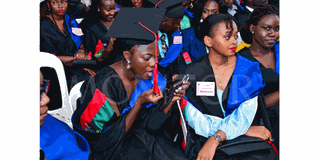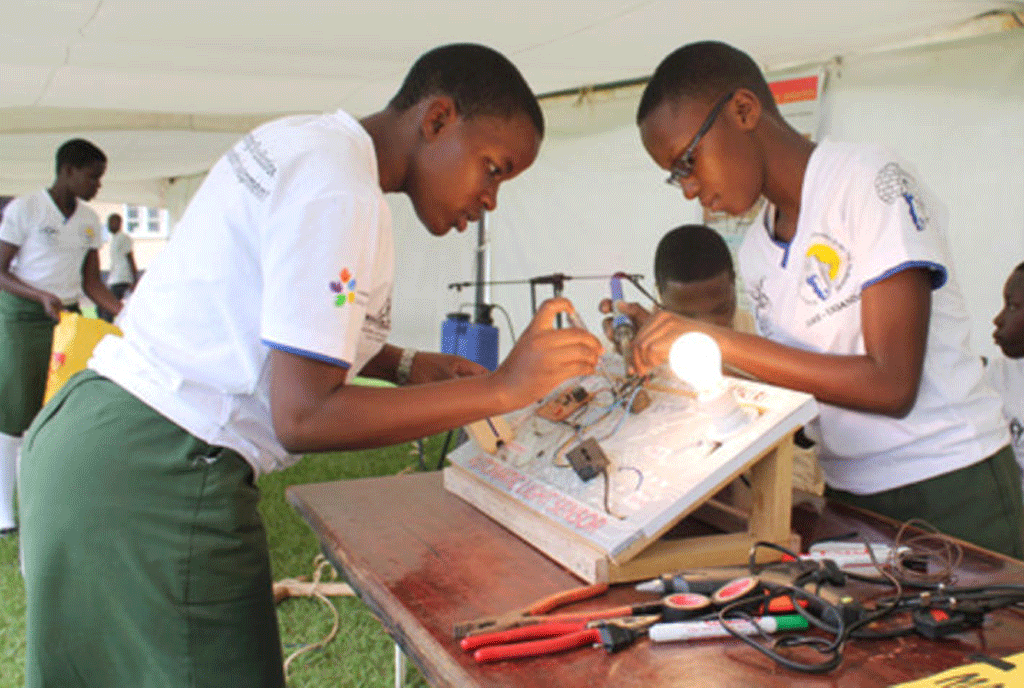Prime
Govt to give loans to students of Arts

Graduands attend the Makerere University’s 72nd graduation ceremony on May 23. PHOTO/MICHAEL KAKUMIRIZI
What you need to know:
- Olive branch? The government, which has been offering the loans to students studying STEM courses in an ambitious plan to shore up Sciences, has made the policy shift that will benefit thousands starting in the 2022/2023 academic year.
Students planning to study humanities at universities and other higher institutions of learning will, starting the 2022/23 academic year, be eligible to apply for government study loans. The online applications start on Friday.
The decision by the Higher Education Students Financing Board (HESFB) underlines a major reversal of a policy under which only Science, Technology, Engineering and Mathematic (STEM) courses have been eligible since the establishment of this funding mechanism in 2014.
Mr Bbosa Kizito, the HESFB director for operations, said that the Board decided to onboard students offering humanities because some of the courses are “critical” for Uganda’s development.
“Tourisms has been listed in the National Development Plan III as one of the supporting programmes that are critical for national development. We are hopeful that more people will be employed in the sector,” he said.
Uganda Tourism Board in a 2020 statistics and economic analysis brief, reported that the country raked in about Shs1.5 trillion from tourism exports in 2019, which was 9.4 percent higher than earnings seven years earlier.
The bigger driver was increased inflow of African tourists, mainly for leisure, where average premium per-capita spend grossed $1,000 (Shs3.7m).
ALSO READ: Anatomy of Unatu standoff with government
Permits for gorilla tracking brought in substantial revenues, adding to national parks and hiking fees as well as a charges for trips to cultural sites and villages, among others.
However, the nearly two years of Covid-induced lockdown, during part of which the international skies were closed to air traffic, wiped out these gains.
By April 2020, UTB statistics shows that earning in “accommodation and food services had dropped by 70 percent compared to 2019, and 77 percent of establishments had laid off staff”.
The sector, thanks to high immunisations and opening of international borders, is flickering to health and the government has promised to inject more cash to fast-track its renewal as a leading forex earner and value-chain job creator.
Humanities
In an interview yesterday, Mr Bob Nuwagira, the spokesperson of HESFB, said the board is onboarding eligible humanities’ courses on one-on-one basis to ensure that those critical for national development are prioritised.
“There has been an outcry on why we are sponsoring only science students. It is upon this background that we brought agriculture on board and now we have tourism. Others will follow accordingly,” he said.
The change of heart dovetails with heated science-versus-arts public discourse gripping the country after the government, at the prodding of President Museveni, moved to enhance the remunerations of scientists, leaving their Arts counterparts on significantly lower pay.
The disparity that experts and critics argue should best be cured through harmonisation of salaries of all public officials by a Salary Review Commission, which they want the government to establish, prompted a three-week industrial action by secondary school Arts teachers and all teachers at public primary schools.
Organised under the aegis of the Uganda National Teachers’ Union, or Unatu, the strike paralysed learning at primary schools across the country, but President Museveni managed to talk the teachers out of the industrial action as it entered a fourth week this month.
He argued, as in the past, that his government is committed to enhancing remuneration of all its employees, but has started with scientists because of a limited resource envelope and scientists are most required to fast-track Uganda’s socio-economic transformation as envisaged under National Development Plan (NDP) III.
The onboarding of Tourism increased the number of eligible courses for study loans to 16. The dominant programmes bankrolled under the scheme have hitherto been health and medical related courses, sciences in education and engineering.
Arts budget
The good news for Arts students came with a knock for all. The Board said its Shs38.4 billion budget to sponsor 3,000 students, alongside the 1,600 continuing counterparts, was slashed by Shs10b.
Sciences vs non-sciences:From fiction to realities
As a result, intake for the study loans will drop by 2,000 and only between 500 to 1,000 new students will be offered cash.
Mr Nuwagira said they plan to start fundraising so that more gifted, but less fortunate, students can benefit.
He proposed that private sponsors should convert their offers to loans so that recipients pay back to benefit new applicants, corresponding with similar proposals by some legislators that government scholarships at the universities should altogether be abolished and replaced them with study loans.
The call followed findings that students from rich families that are studying in expensive schools are the ones benefiting from the government scholarship, yet their parents can afford university education.
Some sources, who preferred anonymity, told this newspaper that the Board has Shs14.5b arrears for the previous semesters.




